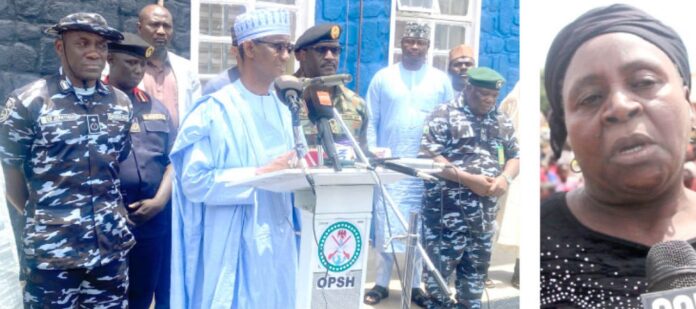By Hauwau Shehu Maikeffi
The land is quiet now, but it is not at peace. In Bokkos Local Government Area of Plateau State, the silence that follows bloodshed is thick with sorrow. Survivors of the March 28 and April 2 attacks have begun to speak and their words paint a chilling picture of brutality and despair.
“We were sleeping when they came. I heard my mother scream. By the time I ran out, the house was already on fire,” said Rebecca Iliya, 17, her voice barely audible, her eyes lost somewhere beyond the trauma.
Armed assailants reportedly stormed several villages under the cover of darkness, torching homes, slaughtering livestock, and killing indiscriminately. Dozens were left dead, many others maimed, while families fled into the bush with nothing but the clothes on their backs.
According to local accounts, the attackers moved swiftly, methodically, and without mercy. Fields were burned. Churches and homes reduced to ash. Survivors now shelter in makeshift camps, grieving their dead and fearing what might come next.
In response, the Arewa Consultative Forum (ACF) issued a stark warning to the federal government: act now, or risk further collapse of security in the Middle Belt. The group decried the persistent violence in Plateau, calling it a humanitarian disaster in the making.
“Enough is enough,” the ACF declared in a statement. “Our communities cannot continue to bleed while government looks the other way. Security must be restored. Justice must be pursued.”
But for many residents, these calls feel familiar — and frustratingly repetitive. The cycle of attacks, condemnation, and silence has become a bitter ritual. Community leaders, too, have demanded a proactive and preventive approach rather than mere reactionary rhetoric.
What lies behind these attacks? For years, Plateau State has been a fault line for ethno-religious and herder-farmer tensions. Disputes over land, grazing routes, and deep-seated historical grievances have exploded into recurrent violence. Yet, behind every so-called “clash” are human stories of children orphaned overnight, of elderly people buried without rites, of dreams burned to the ground.
“We can no longer farm, we cannot sleep. We are afraid always,” said Yakubu Danjuma, whose wife and two sons were killed in the April 2 attack. “The government promised us peace. Where is it?”
With each attack, the social fabric of Bokkos frays further. The fear is not just about what has happened, but about what is being allowed to continue. The victims of these atrocities are not statistics, they are people with names, stories, and the same right to safety as any Nigerian.
As the nation confronts yet another grim chapter of internal conflict, Nigerians are calling for more than words. They are demanding action strategic security deployment, peacebuilding interventions, justice for victims, and above all, political will.
In the charred ruins of Bokkos, survivors are rebuilding with grief in their bones and hope in short supply. But they are speaking and the nation must now listen, not just with sympathy, but with resolve.










